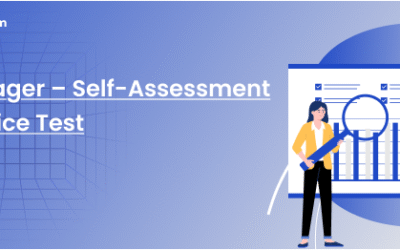What is School Management
In the ever-evolving world of education, effective school management plays a pivotal role in shaping the educational experience for students and staff alike. But what exactly does school management entail? From overseeing daily operations to setting educational policies, school management encompasses a wide range of responsibilities. In this article, we will delve into the ins and outs of school management, exploring the key roles and functions involved.
At its core, school management is the process of organizing and coordinating the resources, people, and activities within a school to ensure smooth operations and optimal learning outcomes. School managers, often referred to as principals or headteachers, work alongside teachers, administrators, and support staff to create an environment conducive to learning and growth.
From budgeting and finance management to curriculum development and staff leadership, school managers play a multifaceted role in the educational ecosystem. By efficiently managing resources and fostering a positive learning environment, they contribute to the overall success of the school.
Join us as we unravel the complexities of school management and gain valuable insights into this crucial aspect of the education sector. Explore the strategies, challenges, and best practices that school managers employ to create optimal learning environments for students.
Importance of Effective School Management
The significance of adept school management cannot be overstated. An effective school manager ensures that the institution operates seamlessly, providing the necessary support for teachers to impart quality education and for students to achieve their full potential. In the absence of proficient management, a school can quickly become disorganised, which can have a detrimental effect on student performance and staff morale.
Effective school management is also critical for maximising resource utilisation. Efficient use of funds, proper maintenance of school facilities, and the implementation of cutting-edge educational technologies all fall under the purview of the school management. This efficiency not only saves money but also enhances the learning environment, making it more engaging and conducive to student success.
Moreover, effective school management is pivotal in creating a school culture that values continuous improvement, collaboration, and innovation. By setting clear expectations and providing a vision for what the school aims to achieve, the management team can inspire teachers and students alike to strive for excellence in all aspects of their educational journey.
Key Roles and Responsibilities in School Management
The roles and responsibilities of school management are diverse and require a wide skill set to ensure that the school runs like a well-oiled machine. The principal or headteacher, for example, is not just an educational leader but also an adept administrator, a deft human resources manager, and an astute financial overseer.
One of the primary responsibilities of school management is the development and implementation of educational policies. These policies lay the foundation for the academic and behavioural standards within the institution. They must align with regulatory requirements and be designed to foster an environment of learning and respect.
Additionally, school management is tasked with the recruitment, training, and development of staff. This involves not only hiring qualified teachers and support staff but also providing ongoing professional development opportunities to ensure that they remain at the forefront of educational best practices.
School Management Software and Tools
To streamline the complexities of running an educational institution, school management often relies on specialised software and tools. These digital solutions can handle a multitude of tasks such as student enrolment, attendance tracking, grade recording, and even communication with parents and staff.
School management software typically includes features for managing the school’s finances, such as budgeting tools, expense tracking, and financial reporting. By automating these tasks, school managers can focus more on strategic planning rather than getting bogged down with administrative minutiae.
Furthermore, these tools often come with analytics capabilities, offering insights into areas such as student performance patterns, resource allocation efficiency, and teacher workload. By harnessing these insights, school management can make data-driven decisions that enhance the educational outcomes for their students.
School Management Best Practices
Best practices in school management are continuously evolving as new challenges emerge and educational paradigms shift. However, some fundamental principles remain critical to the success of any school management strategy.
One such practice is fostering open lines of communication. Whether between teachers and students, staff and parents, or management and the wider school community, clear and transparent communication is key to addressing issues promptly and maintaining a collaborative environment.
Another best practice is the commitment to continuous improvement. School management should regularly assess and revise their strategies, policies, and practices to ensure they remain relevant and effective. This involves staying informed about the latest educational research, trends, and technologies.
Lastly, effective school management requires a focus on leadership development within the school. By empowering teachers and administrative staff to take on leadership roles, the management team can build a strong, resilient community that is capable of navigating the complexities of the educational landscape.
Challenges in School Management
Despite the best intentions and efforts, school management faces numerous challenges. One of the most pressing issues is the need to balance educational excellence with budget constraints. Financial limitations can hinder the ability to implement new programmes, maintain infrastructure, and attract top talent.
Another challenge is managing the diverse needs of students. In an inclusive educational system, schools must accommodate a wide range of learning styles, abilities, and backgrounds, which requires a flexible and adaptive management approach.
Moreover, school managers must navigate the ever-changing regulatory landscape. Compliance with educational standards and legal requirements is non-negotiable, and keeping abreast of these changes can be a considerable task.
Strategies for Overcoming School Management Challenges
To overcome the myriad challenges in school management, strategic planning and proactive leadership are essential. One strategy is to develop a robust financial plan that prioritises spending and identifies potential areas for cost-saving without compromising the quality of education.
Another key strategy is the implementation of inclusive policies and practices that ensure all students have access to the resources and support they need to succeed. This might include differentiated instruction techniques, specialised support programmes, and culturally responsive curricula.
Additionally, staying informed about legal and regulatory changes is crucial. School management can achieve this by maintaining strong connections with educational authorities, attending relevant training sessions, and joining professional associations that provide updates and resources.
School Management Case Studies
Examining case studies of successful school management can provide valuable insights into effective strategies and practices. For instance, a school that dramatically improved its student performance might have implemented a comprehensive data analysis programme to identify areas for improvement and track progress.
Another case study might showcase a school that has excelled in community engagement. By involving parents, local businesses, and community organisations in the life of the school, management can build a support network that enhances educational outcomes and fosters a sense of shared responsibility.
Case studies also highlight how schools overcome specific challenges, such as integrating technology into the classroom or addressing social issues that impact students. By learning from these real-world examples, school managers can adapt successful strategies to their own contexts.
Training and Professional Development for School Management
Continuous professional development is a cornerstone of successful school management. Training programmes for school managers often cover topics such as leadership skills, financial management, educational law, and curriculum development.
Many professional development opportunities are available through educational conferences, workshops, and online courses, allowing school managers to stay up-to-date with the latest trends and best practices in education.
Moreover, many school managers pursue advanced degrees in educational leadership or school administration. These programmes provide a deeper understanding of the complexities of managing a school and equip leaders with the tools they need to excel in their roles.
Conclusion and Future Trends in School Management
School management is an ever-evolving field, with new challenges and opportunities emerging regularly. The future of school management is likely to see an increased focus on technology integration, personalised learning experiences, and data-driven decision-making.
Additionally, there will be a greater emphasis on sustainability and environmental stewardship within schools. As society becomes more conscious of environmental issues, school management will need to adopt green practices and teach students the importance of sustainable living.
In conclusion, effective school management is critical to the success of educational institutions and the students they serve. By embracing best practices, overcoming challenges, and staying informed about future trends, school managers can create vibrant learning environments that prepare students for the challenges of the 21st century.
The role of school management is complex but undeniably vital. As we look to the future, those who lead our educational institutions will continue to play a pivotal role in shaping the minds and lives of young learners across the globe.




